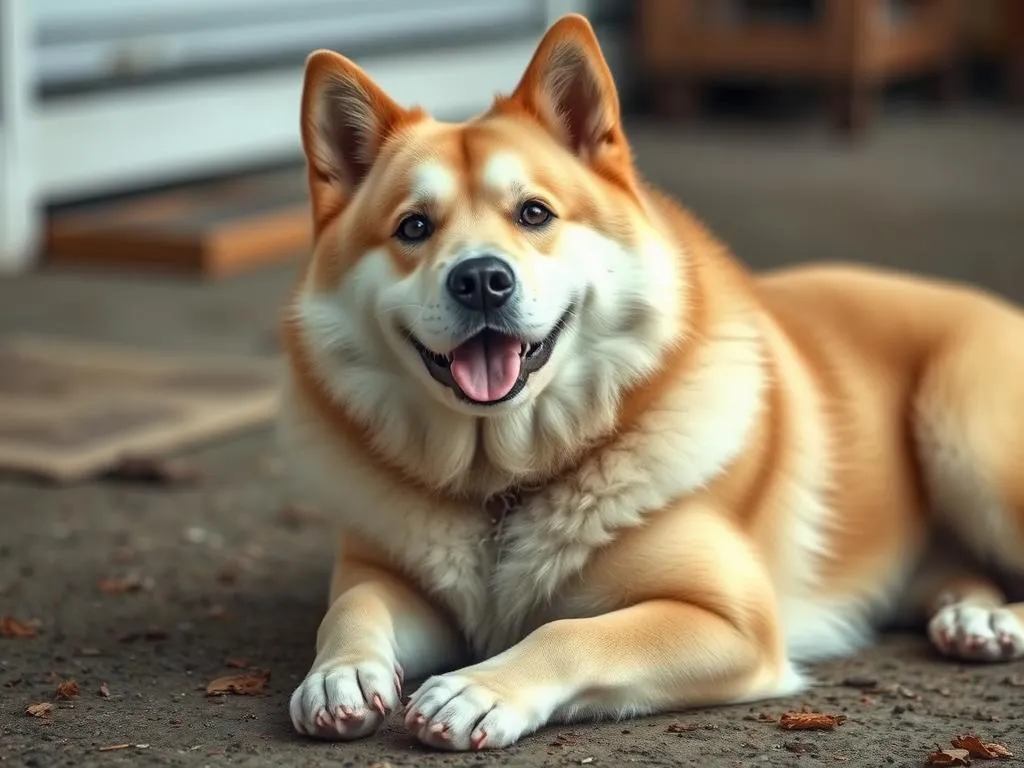
Introduction
The Jindo dog, known for its loyalty and intelligence, originates from Jindo Island in South Korea. This breed has gained a reputation for being both an excellent companion and a skilled hunting dog. Jindos are characterized by their strong build, erect ears, and a thick double coat that can come in various colors, including white, black, and brindle. As a unique breed, they require specific care and attention, making it crucial for potential owners to understand the financial commitment involved.
This article aims to provide a comprehensive breakdown of the costs associated with owning a Jindo dog, exploring everything from initial purchase prices to ongoing care expenses. Understanding these costs is essential for anyone considering welcoming a Jindo into their home, ensuring that they budget effectively for pet ownership. So, how much does a Jindo dog cost? Let’s delve into the details.
Initial Purchase Costs
Breeder Prices
When it comes to acquiring a Jindo dog, purchasing from a reputable breeder is often the most common route. The average price range for Jindo puppies typically falls between $1,000 and $3,000. However, this price can vary significantly based on several factors:
- Lineage: Puppies from champion bloodlines or show-quality parents may command higher prices.
- Location: Prices can differ based on regional demand and availability, with urban areas often seeing increased costs.
- Reputation: Established breeders with good reputations generally have higher prices due to their commitment to responsible breeding practices.
Choosing a reputable breeder is crucial as it ensures the health and temperament of your puppy. A good breeder will provide health clearances and allow you to meet the puppy’s parents, giving you insight into the breed’s characteristics.
Adoption Costs
Alternatively, adopting a Jindo from a shelter or rescue organization can be a more affordable option. Adoption fees usually range from $100 to $500, which often includes vaccinations and spaying/neutering.
The benefits of adopting a Jindo include:
- Saving a Life: You provide a home for a dog in need.
- Lower Initial Costs: Adoption fees are typically lower than purchasing from a breeder.
- Health Checks: Many shelters conduct health assessments and vaccinations before adoption.
However, it’s essential to be aware of additional fees that may arise during the adoption process, such as transport fees if the dog is coming from a different location.
Ongoing Care Costs
Food and Nutrition
Feeding your Jindo a balanced diet is essential for its health and well-being. On average, expect to spend $50 to $100 per month on quality dog food. Jindos thrive on high-protein diets, and their nutritional needs may vary based on age, size, and activity level.
Some recommended diet types for Jindo dogs include:
- High-quality dry kibble: Look for brands with real meat as the first ingredient.
- Raw diet: Some owners opt for a raw food diet, which can be more expensive but beneficial for certain health conditions.
- Special dietary needs: If your Jindo has allergies or health issues, you may incur additional costs for specialized food.
Veterinary Care
Regular veterinary visits are crucial for maintaining your Jindo’s health. Annual check-ups typically cost between $100 and $300, depending on your location and the services included. Beyond routine check-ups, consider the following:
- Vaccinations: Puppies require a series of vaccinations, which can add up to $75 to $150.
- Preventive care: Flea, tick, and heartworm prevention can cost an additional $50 to $200 annually.
- Health issues: Jindos are generally healthy, but they can be prone to certain conditions like hip dysplasia or skin allergies, potentially leading to higher vet bills.
Grooming
Grooming is another essential aspect of Jindo care. Jindos typically require grooming every 6 to 8 weeks, with costs ranging from $40 to $100 per session for professional services. However, many owners choose to groom their Jindo at home, saving on costs but requiring some knowledge and practice.
Key grooming considerations include:
- Seasonal shedding: Jindos shed heavily twice a year, necessitating more frequent grooming.
- DIY grooming: Investing in quality grooming tools can help you manage costs effectively.
- Professional services: For those uncomfortable with grooming at home, professional groomers can provide the necessary services, especially during shedding seasons.
Training and Socialization
Training is vital for Jindo dogs, known for their intelligence and independence. Puppy training classes typically cost between $100 and $300 for a series of sessions. Investing in training is essential for proper behavior and socialization, especially for Jindos, who may exhibit strong-willed traits.
Consider these training resources:
- Puppy classes: Offer foundational training for obedience and socialization.
- Ongoing training: Regular classes or workshops help reinforce good behavior as your dog matures.
- At-home training: Many resources are available online for those who prefer to train their Jindo at home.
Additional Expenses
Supplies
When bringing a Jindo into your home, there are initial setup costs to consider. Expect to spend between $200 and $500 on essential supplies:
- Bed: A comfortable dog bed is crucial for your Jindo’s health.
- Crate: A crate can aid in house training and provide a safe space.
- Toys: A variety of toys help keep your Jindo mentally stimulated and entertained.
- Leash and collar: Essential for walks and outings.
Ongoing supplies, such as food bowls, grooming tools, and treats, can add another $50 to $100 monthly.
Insurance
Pet insurance can help mitigate unexpected veterinary costs. The average cost of pet insurance for a Jindo ranges from $30 to $80 per month, depending on the coverage level and provider. Considerations when choosing pet insurance include:
- Coverage options: Look for plans that cover accidents, illnesses, and preventive care.
- Deductibles: Higher deductibles often lead to lower monthly payments but require more out-of-pocket costs when claims are made.
- Pre-existing conditions: Most insurance plans do not cover pre-existing conditions, so factor this into your decision.
Boarding and Pet Care Services
If you travel frequently, consider the costs associated with boarding your Jindo. Boarding facilities typically charge between $25 and $75 per day, depending on the services offered. Alternatively, pet-sitting or dog-walking services can range from $15 to $50 per visit.
Reliable pet care is essential, especially for Jindos, who thrive on companionship and routine. Research local options to find trustworthy caregivers who understand the breed’s unique needs.
Long-term Financial Commitment
Lifespan and Total Ownership Costs
The average lifespan of a Jindo dog is 12 to 15 years, meaning that prospective owners should prepare for long-term financial commitments. Estimating total costs over a dog’s lifetime can range from $15,000 to $30,000, encompassing food, veterinary care, grooming, training, and supplies.
Unexpected Costs
While planning for regular expenses is essential, be prepared for unexpected costs as well. Emergency veterinary visits can quickly add up, with average costs ranging from $300 to $1,500, depending on the situation. Additionally, behavioral issues or training challenges may require further investment in professional training or counseling.
Conclusion
Owning a Jindo dog is a rewarding experience filled with love and companionship. However, understanding the financial implications is crucial for responsible pet ownership. From initial purchase costs to ongoing care and unexpected expenses, the question of how much does a Jindo dog cost requires careful consideration.
As you weigh the responsibilities of dog ownership, remember that the joy and fulfillment a Jindo brings to your life is immeasurable. By budgeting wisely and planning for both routine and unexpected costs, you can ensure a happy and healthy life for your new furry family member.
FAQs
Are Jindo dogs expensive to maintain?
While the initial purchase price of a Jindo can be high, ongoing maintenance costs vary based on individual choices regarding food, grooming, and veterinary care. Overall, Jindos are moderate in terms of maintenance costs compared to some other breeds.
What are some hidden costs of owning a Jindo?
Hidden costs may include unexpected veterinary expenses, specialized food for dietary needs, training classes for behavioral issues, and travel-related boarding or pet care services.
Where can I find reputable breeders or adoption centers?
Research local breeders and adoption centers through online directories, breed-specific rescue organizations, or community resources to find trustworthy options.
This comprehensive guide aims to equip prospective Jindo dog owners with the knowledge they need to prepare for the financial responsibilities of pet ownership.









